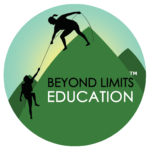As a public safety professional or healthcare provider, it is your duty to respond to cardiac or breathing emergencies until more advanced medical personnel can take over. From assessing needs and making decisions to providing care, this professional-level certification program teaches the basic life support skills required for your job through discussion, video, and hands-on training based on real-life rescue scenarios. The program trains professional rescuers (EMTs, nurses, firefighters, law enforcement, athletic trainers, etc.) to respond to breathing and cardiac emergencies in adults, children, and infants using a team approach until more advanced medical personnel take over. This course is taught directly in line with the American Heart Association Basic Life Support for Healthcare Providers curriculum so that professional rescuers are providing the same standard of care regardless of which organization they train with.
Best Suited For:
- Mammoth Resorts Ski Patrol Employees
- Fire Department Personnel
- Police Department Personnel
- Search and Rescue Personnel/Volunteers
- U.S. Forest Service Personnel
- EMTs*
- Paramedics*
- Nurses*
- Lifeguards
- Any Professional Rescuer/Healthcare Provider*
* Check with your employer to make sure they accept Health & Safety Institute or American Red Cross certification. Some organizations require certifications from American Heart Association.
Time Commitment:
- Hybrid Course
- E-Learning = ~ 3+ Hours
- In-Person = ~ 3-4 Hours
- Traditional Course = ~ 7-8 Hours
Certification Offered:
-
Basic Life Support for Health Care Providers valid for 2 years
Included Materials:
-
Basic Life Support for Health Care Providers Textbook (Digital Copy)
The following topics are covered as part of the core curriculum:
- Primary Assessment
- Ventilations including use of CPR breathing barriers and use of bag-valve-masks (BVMs)
- Choking (conscious and unconscious)
- CPR (one- and two+ rescuer)
- Using AEDs
- Naloxone Administration
Students must be at least 18 years old.
Join Our Community To Receive Updates!
Receive updates on our latest course offerings and additions to our educational blog!

